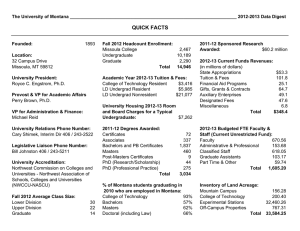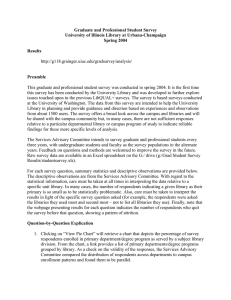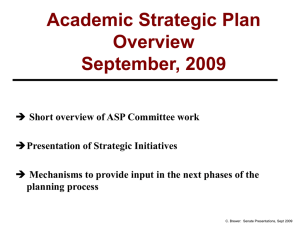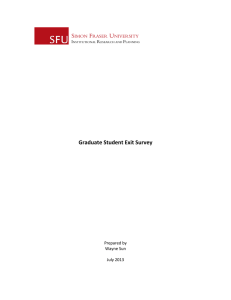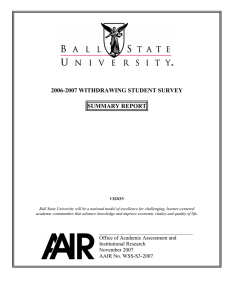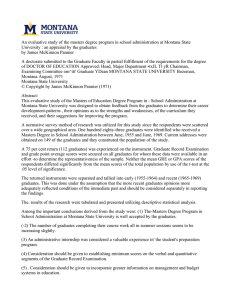Investigating the Connections between Oil and Gas Industry
advertisement
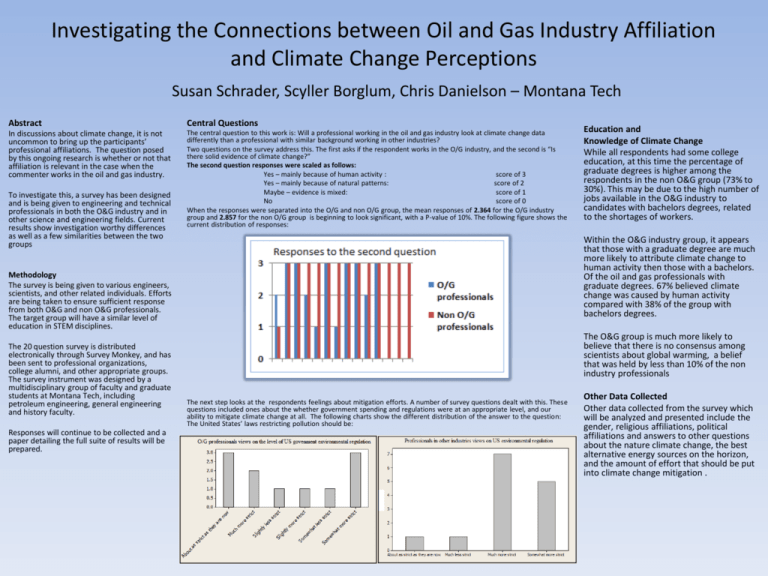
Investigating the Connections between Oil and Gas Industry Affiliation and Climate Change Perceptions Susan Schrader, Scyller Borglum, Chris Danielson – Montana Tech Abstract Central Questions In discussions about climate change, it is not uncommon to bring up the participants’ professional affiliations. The question posed by this ongoing research is whether or not that affiliation is relevant in the case when the commenter works in the oil and gas industry. The central question to this work is: Will a professional working in the oil and gas industry look at climate change data differently than a professional with similar background working in other industries? Two questions on the survey address this. The first asks if the respondent works in the O/G industry, and the second is “Is there solid evidence of climate change?” The second question responses were scaled as follows: Yes – mainly because of human activity : score of 3 Yes – mainly because of natural patterns: score of 2 Maybe – evidence is mixed: score of 1 No score of 0 When the responses were separated into the O/G and non O/G group, the mean responses of 2.364 for the O/G industry group and 2.857 for the non O/G group is beginning to look significant, with a P-value of 10%. The following figure shows the current distribution of responses: To investigate this, a survey has been designed and is being given to engineering and technical professionals in both the O&G industry and in other science and engineering fields. Current results show investigation worthy differences as well as a few similarities between the two groups Methodology The survey is being given to various engineers, scientists, and other related individuals. Efforts are being taken to ensure sufficient response from both O&G and non O&G professionals. The target group will have a similar level of education in STEM disciplines. The 20 question survey is distributed electronically through Survey Monkey, and has been sent to professional organizations, college alumni, and other appropriate groups. The survey instrument was designed by a multidisciplinary group of faculty and graduate students at Montana Tech, including petroleum engineering, general engineering and history faculty. Responses will continue to be collected and a paper detailing the full suite of results will be prepared. 3 2 O/G professionals 1 Non O/G professionals 0 1 3 5 7 9 11 13 The next step looks at the respondents feelings about mitigation efforts. A number of survey questions dealt with this. These questions included ones about the whether government spending and regulations were at an appropriate level, and our ability to mitigate climate change at all. The following charts show the different distribution of the answer to the question: The United States’ laws restricting pollution should be: Education and Knowledge of Climate Change While all respondents had some college education, at this time the percentage of graduate degrees is higher among the respondents in the non O&G group (73% to 30%). This may be due to the high number of jobs available in the O&G industry to candidates with bachelors degrees, related to the shortages of workers. Within the O&G industry group, it appears that those with a graduate degree are much more likely to attribute climate change to human activity then those with a bachelors. Of the oil and gas professionals with graduate degrees. 67% believed climate change was caused by human activity compared with 38% of the group with bachelors degrees. The O&G group is much more likely to believe that there is no consensus among scientists about global warming, a belief that was held by less than 10% of the non industry professionals Other Data Collected Other data collected from the survey which will be analyzed and presented include the gender, religious affiliations, political affiliations and answers to other questions about the nature climate change, the best alternative energy sources on the horizon, and the amount of effort that should be put into climate change mitigation .
